10 “Healthy” Foods That You Shouldn’t Eat

Companies in the food industry are experts of deception. They slap clever wording on their labels like “low fat,” “natural,” or “heart healthy” with the intention of making you believe their product is a healthy choice. But the sad truth is, many foods you find in the grocery store that are advertised as healthy are nothing of the sort.
This makes it exceptionally confusing and difficult for the average person to determine the difference between a true health food and a marketing gimmick. To sort out fact from fiction, here are 10 popular “health foods” that are, in actuality, horrible for your health.
1. Diet or Zero Calorie Soda
Diet sodas are a popular choice among people who want soda without gaining weight from all the sugar normal soft drinks contain. Unfortunately, zero calorie sodas are just another marketing trick—there’s nothing “diet” about them.
Even though they contain artificial sweeteners to lower the sugar content and they have “diet” in their name, research shows that diet sodas can actually cause you to gain weight (1).
This could be due to the fact that artificial sweeteners encourage sugar cravings (2). They also trick the brain into expecting something sweet, causing a spike in insulin (3). Animal studies also suggest artificial sweeteners change the gut microbiome in a way that promotes obesity (4). These three effects create the perfect recipe for weight gain.
2. Refined Vegetable Oils
Processed vegetable oils like canola, soy, and corn oil are not healthy despite what Big Food companies tell you. Many are GMO, or genetically modified, to withstand multiple applications of the toxic weed killer glyphosate, and these chemicals leave residues that get carried into countless foods.
These vegetable oils also go through a caustic refining process using toxic hexane and other chemical additives. This results in an oil that will readily oxidize and go rancid. These oils are also high in omega-6 fats which can trigger inflammation in the body (5).
3. Fat-Free or Low-Fat Foods
Unlike fruits and veggies which are naturally fat free, processed foods that claim to be low-fat or fat-free are typically modified to remove the fat. But when you take the fat out of food, it loses a significant amount of flavor.
To make up for this loss of flavor, companies add massive amounts of sugar and salt. This results in a product that’s substantially worse for you than the original full-fat food. According to Dr. Mark Hyman, sugar is what makes you fat—not fat itself (6). You would be better off opting for something with natural fat content, so long as it’s not refined vegetable oil.
4. Processed Fruit Juice
Food companies want you to think that fruit juices are a healthy option. In reality, processed fruit juice is just as bad as soda. When fruit is stripped of its skin, pulp, and flesh, you’re essentially left with flavored sugar water.
Fruit juices like orange juice contain almost as much sugar as soda—around 5 to 8 teaspoons per cup. Moreover, research shows that fructose (fruit sugar) is the most problematic part of fruit with high doses raising triglycerides and increasing the risk for heart disease and diabetes (7).
A much healthier option is to juice whole fruits and veggies, mostly nutritious green veggies. If you don’t have the time or want the clean up of a juicer, you can pick up a tasty organic green juice powder for a fast and easy green juice.
5. Non-Organic Strawberries
Strawberries can be an excellent healthy snack, with research showing their intake is especially beneficial for the heart. The catch is that they must be organic in order to be truly healthy. Why?
Like many other non-organic fruits, conventional strawberries are riddled with toxic pesticides. According to research from the Environmental Working Group, even after washing the fruit, strawberries have topped the list for the most toxic pesticides.
If you don’t have access to fresh organic strawberries, you can usually find them in the frozen aisle, perfect to add to smoothies or make a healthy treat.
6. Most Protein Bars
Much like other processed foods, protein bars are typically loaded to the brim with questionable additives. They often contain ingredients like corn syrup, brown rice syrup, processed vegetable oils, artificial sweeteners, unknown “natural flavors” and synthetic vitamins.
The good news is, not all protein bars are unhealthy. When in doubt, pick the protein bar that has recognizable whole food sourcing, the least number of additives, and the lowest sugar content. Or, you can skip the processed protein bars altogether, and opt for a healthy delicious protein shake sourced from organic superfoods.
7. Gluten-Free Snacks
Avoiding gluten is a full-fledged health craze. And for good reason too since many people have sensitivity to gluten. However, food companies have taken advantage of the anti-gluten trend by making customers think products are healthy simply because they are gluten-free.
But taking the gluten out of wheat doesn’t change the fact that non-organic wheat is also usually contaminated with a toxic pesticide called glyphosate which is linked to cancer and gut-microbiome disruption.
Many gluten-free foods replace wheat with rice, which can have a higher level of toxic heavy metals such as arsenic. And gluten-free snacks may still be heavily processed and high in sugar, salt, and toxic additives. So, buyer beware on gluten-free food to always check the label for possible harmful ingredients.
8. Farm-Raised Fish
Oily fish can be an excellent source of anti-inflammatory omega-3 fatty acids. The important thing to realize, however, is that only wild-caught fish are healthy.
Farmed fish may be contaminated with pesticides, parasites and treated with antibiotics (8). Farm-raised salmon has been found to have significantly more environmental pollutants than wild salmon, including toxic dioxins (9).
However, overfishing of many species is a huge concern, and a reason to get your essential fatty acids from plant sources instead of endangered fish stocks. By eating plant-based omegas, you’ll also be saving many other marine species that get inadvertently killed through bycatch (10).
9. Margarine
It used to be that butter was demonized by doctors and health “experts” alike. Instead, they recommended that margarine be used to butter your bread and make your mashed potatoes.
Only years later did research show that those who did switch from butter to margarine were much more likely to die from heart disease (11). Despite this fact, food companies still promote margarine as a healthy alternative.
The problem is that margarine is a highly processed food, typically made with the same refined GMO vegetable oils that trigger harmful inflammation. It’s far better to eat real grass-fed butter in moderation.
10. Non-Organic Yogurt
If you eat yogurt often, you may want to double check how much sugar is in your favorite brand. Most reduced-fat or flavored yogurts are full of various forms of sugar or artificial sweeteners. Some of these top brands contain up to half of your daily recommended added sugar intake.
Sugar isn’t the only issue either. Many types of yogurt have syrups derived from GMO corn, artificial colors or other unsavory additives. As with many foods, picking organic may be the best option to ensure a healthy yogurt.

